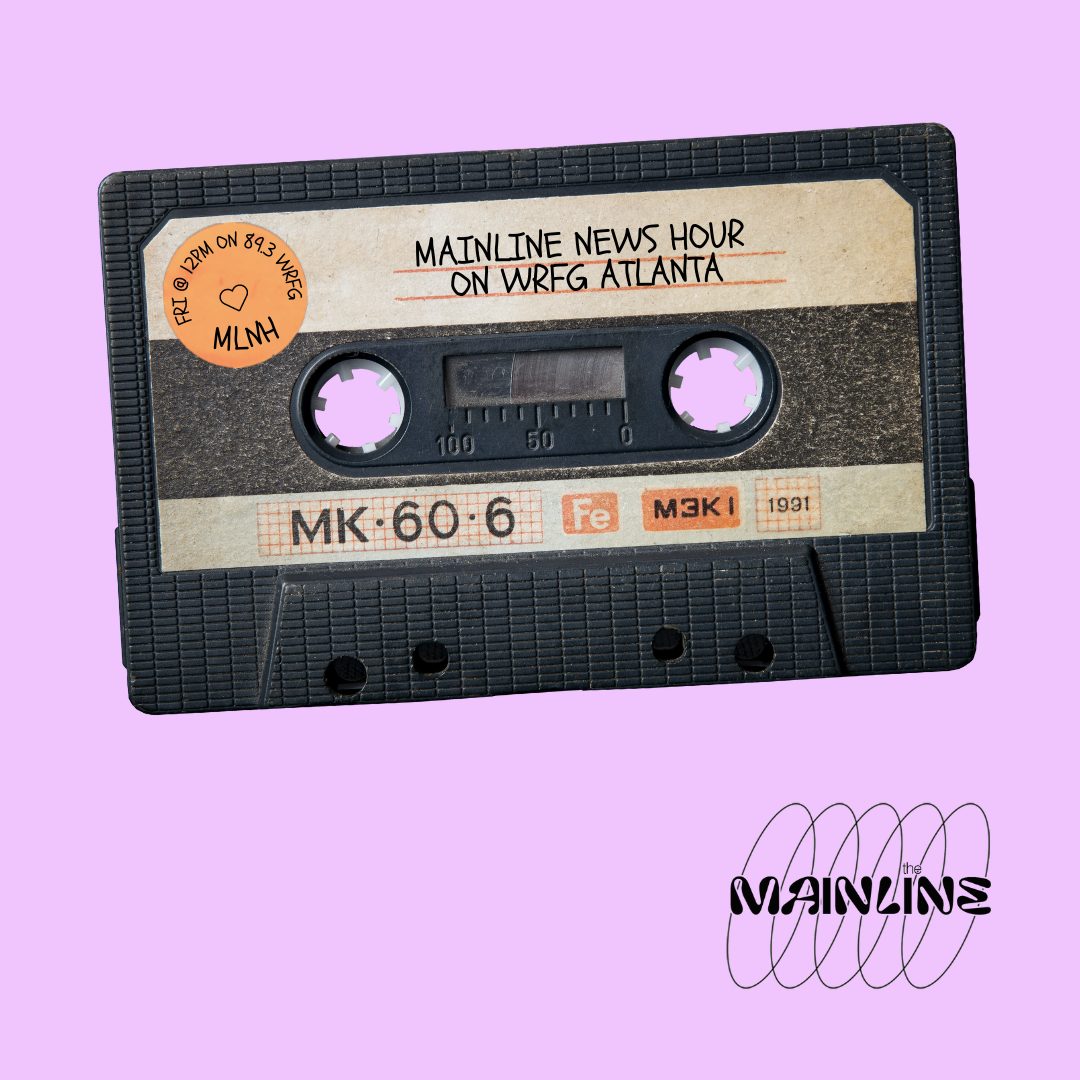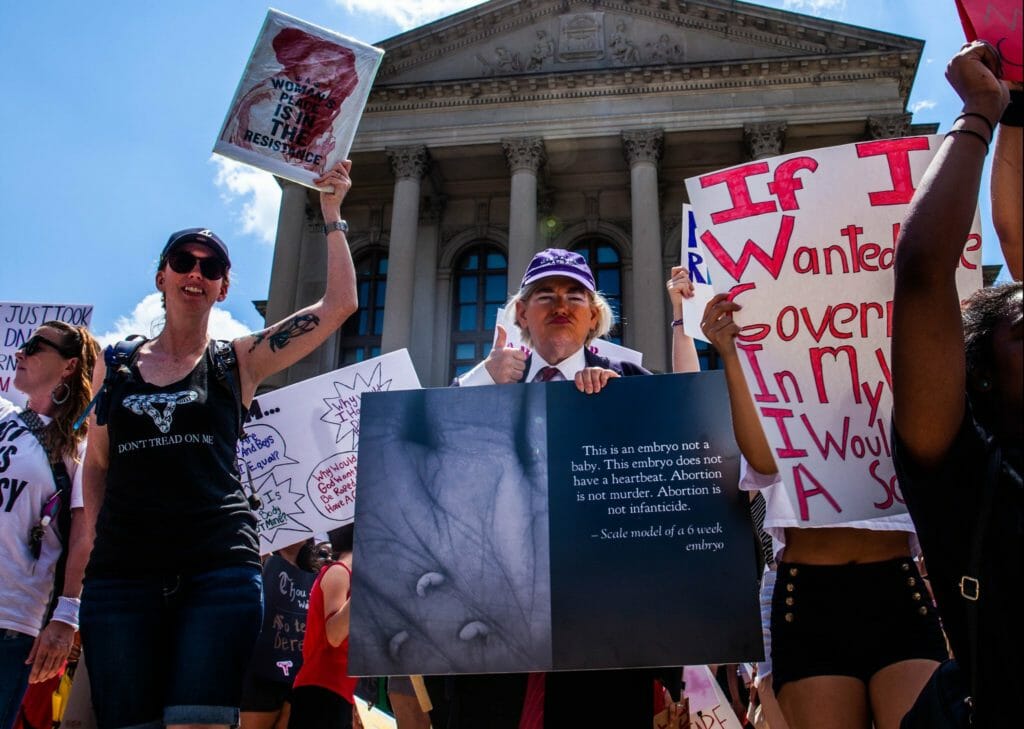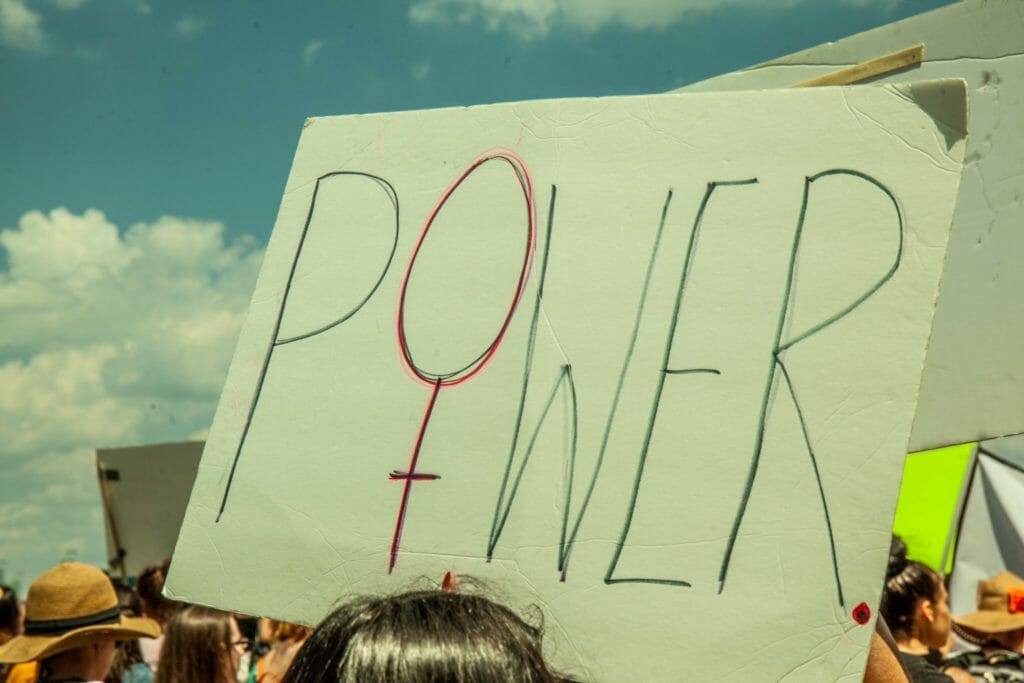Executive Director Bryan Schroeder responds to the COVID-19 crisis in Atlanta as it continues to affect restaurant industry workers
As Georgia nears a statewide mandate for restaurants to close their doors to decrease the risk of spreading COVID-19, many industry workers hang suspended in mid-air waiting for the shoe to drop, wondering what’s next in the framework of their day-to-day lives. While everyone is affected by this crisis, restaurant and bar workers and owners are especially vulnerable, as they always are.
Typically being a less than minimum wage gig, servers and bartenders usually work for $2.13/hr, and there are no safety nets in place. More often than not, servers and bartenders receive the brunt end not only of crises themselves, but other people who are also experiencing adverse conditions of the world (i.e. assholes who come in and get wasted because they’re coping with that shitty snowstorm, too, and proceed to take it out on the people around them). So of course, this is the last industry to shutter its doors in light of the ongoing coronavirus pandemic.
The restaurant industry has a 1-3% crisis load. This means over the course of 12 months, 1-3% of food workers have some kind of life-changing crisis, whether that be an injury or illness, a death in the family, or a housing crisis.
Before this pandemic struck, however, the restaurant industry and its workers were already susceptible to crises. According to Bryan Schroeder, Executive Director of Georgia non-profit the Giving Kitchen, the restaurant industry has a 1-3% crisis load. This means over the course of 12 months, 1-3% of food workers have some kind of life-changing crisis, whether that be an injury or illness, a death in the family, or a housing crisis. The Giving Kitchen was formed in late December 2012 when Chef Ryan Hidinger was diagnosed with late-stage cancer. Since then, the Giving Kitchen has helped many cases in the Atlanta restaurant scene and continues to do so during the COVID-19 pandemic.
Many speculate that Atlanta is soon to fall in line with other cities that have issued official mandates to bars and restaurants to close in efforts to slow down the spread of the virus. As I write this, we are currently in the week that public health officials have deemed most important to isolate and self-quarantine in a collective effort to flatten the curve. CDC officials have offered specific guidelines including social distancing techniques along with a regulation to not attend gatherings with more than 10 people. It has been discovered that young and healthy people who are not displaying symptoms are spreading the virus more than initially thought. This information should alarm business owners and workers to close until further notice while the world gets a better grip on this and people can actually be tested. But unfortunately, that’s not the case.
However, systemic shifts are beginning to take form in Atlanta. On Tues., March 17, Atlanta Mayor Keisha Lance Bottoms announced that her office was working with partners to halt evictions for the next 60 days. To become effective immediately, the order calls on those involved to “not allow any issuance of termination or eviction for the non-payment of rent and to not allow any late fees or other charges because of late or non-payment of rent” in any property either sponsored or funded by Atlanta Housing Authority, Atlanta Beltline Inc., Fulton County/City of Atlanta Land Bank Authority, Invest Atlanta, Partners for Home, and the City of Atlanta’s Department of Grants and Community Development.
“Social distancing, home confinement, and self-quarantines are critical in the fight to stop the spread of COVID-19,” Bottoms said in a statement. “The ability for Atlanta residents to remain in their homes is a key component of our collective community efforts to prevent further exposure and spread of this virus. As Mayor, I am calling on our partners to bolster our collective efforts and ensure housing stability for residents.”
This doesn’t completely eradicate the feelings of economic insecurity and general instability many are experiencing during this crisis, as many questions remain unanswered in terms of what the future holds — especially for an industry that is accustomed to withstanding nearly anything. I was able to catch Schroeder on the phone and ask him some questions pertaining to the Giving Kitchen’s plans as the coronavirus outbreak unfolds in Atlanta.
How are you doing?
We’re hanging in there. It’s a tough time. I think at least, for the time being, we have a really clear direction about Giving Kitchen’s role in this crisis. It’s rare, I think, in these times that I can look at our staff and say we know exactly what to do. We know that’s going to evolve and change as the crisis evolves and changes. But for now, for the new few weeks, we have a very clear direction.
Can you tell me more about what that direction is?
We are built based on the idea that our industry has a 1-3% crisis load, which means over the course of 12 months, there’s a 1-3% chance that food service workers are going to have some kind of life-changing crisis. An injury or illness, a death in the family, a housing crisis because of flood or fire. Our system is built on the case management system. Let’s say we cover 400,000 people… somewhere between 4,000 and 10,000 people are gonna call us throughout the course of 12 months with a really serious crisis. We can handle that. That’s what we can do.
What we are not able to handle is those 400,000 people, 85-95% being unemployed or underemployed. Even if we had the hundreds of millions that it would cost us to support people, we wouldn’t have the capacity. So what we’ve done in regards to this crisis is, one: anyone who is suffering from an illness, whether it’s COVID-19 or you’re quarantined in your house because you have chickenpox, if you can use a Teladoc service as a means to see a doctor that’s low cost, you can apply for financial assistance. As for the rest of it, you know, I think we’re going to have to be patient and stay together and support each other as this crisis evolves. I’m hearing a lot of restaurants that are basically going to turn into soup kitchens for their employees.
There is unemployment insurance they’re talking about being passed as part of this COVID package. There is unemployment which can require some coordination between employee and employer. GRA has a great resource. The Giving Kitchen is for the next few weeks going to stay laser focused on doing what we need to do year-round, and also including people who are suffering from COVID or any illness at this time. But that’s going to evolve, and we don’t know what the future is going to be. We’re trying to do our best to stay our course to serve our community. We’ve gotten a lot of financial support, which is great. Not just for the short term of people who can serve, but our best and biggest supporters in terms of all the work we do all across the year.
The message of hope, I think, is that we are seeing the community come together. I’m hearing restaurant owners and restaurant employees coming together, sharing resources, sharing food, coming up with plans to support each other. We’re helping to coordinate those resources and connect people, those resources. We have a website set up that has many COVID-19 resources all in one place. I wish we had an answer that said the Giving Kitchen could somehow send $100 to every food service employee. It’s just, there’s no way functionally we could do it. But that’s the role of the government.
I think one problem is that our government is not acting swiftly enough in a state mandate for restaurants to close. So, a lot of businesses are staying open because they’re afraid, which is understandable, like you said. A little background about me: until October of last year, I worked in the restaurant industry for half my life from 15 years old to 30. My parents are in the restaurant industry, too. I’m so sick of seeing — and I understand it — people feeling the pressure to go in and work a shift and it’s that pressure we’ve always felt. For example, when the “snowpocalypse” happened. Like, we don’t get the day off. We don’t get the day off on a holiday, but this is a pandemic so at this point, you get the day off and it’s not just about you. Otherwise, our hospitals are not going to be able to handle it. What do you think?
Here’s my message of hope to a certain degree. First of all, I’m not a health policy expert. This is what we’re telling our teams:
What’s going to happen over the next two weeks is we’re learning about the virus and we’re learning about ourselves. What we hope to learn about the virus hopefully is: Can you get inoculated? Will you continue to catch it after you’ve had it once? Is the heat and humidity going to provide relief? And do antiviral drugs that treat the symptom of the virus, does it work on COVID-19? Not a vaccine, the vaccine is 12 months away. So those are the top priority things for the scientific community to learn about the virus.
For our community, we need to learn who’s got it and what’s the impact on our health care system. You know, essentially, this whole thing is like a more dangerous flu. It’s just everyone is catching the flu at the same time and it’s overrunning the health care system. The reality is that COVID-19 is going to be with us for at least the next 12 months, but we’re going to figure out a way to deal with it. We’re going to figure out how to test people. Maybe every time you walk into work, you have to have your temperature taken. You know, what is it about the symptoms that we can go ahead and check. The reality is that these next few weeks, as painful as they are, we really have to use them to learn about the virus and learn about us.
The most important thing right now is to get in, get home, and let us learn about the virus. Let\’s learn who\’s sick.
Then, I think, what I hope happens is that in April-ish and May, we begin to throttle the squeeze, right? So [hopefully by then], we’ve tightened it down. We’ve learned about what’s going on. We’ve learned about our community, the health care system’s catching up, and we begin to say, “Okay, with some new practices, we can continue to be ourselves.” That is my hope. That is the only way that I’ve learned to live with this is by saying the most important thing right now is to get in, get home, and let us learn about the virus. Let’s learn who’s sick. Let’s create some new standards and policies for dealing with it, protecting people, checking our temperature every day. Then we’re going to slowly open this thing back up and eventually it’s just going to be like any other virus where you can get a vaccine. You know, that is part of our experience. It\’s just so overwhelming, that\’s the big difference.
What do you say to people who feel like they have to show up to work regardless of the severity of the situation and the information we have because their restaurants aren’t closed yet?
First of all, I’m hearing that people are given a choice to work. The possibility that all restaurants are going to close or dining rooms close and we all go to takeout soon. That’s just a matter of time.
Do you have any idea when?
In the next couple of days, what we’re hearing from our partners like the Georgia Restaurant Association and people like that. Again, we’re not a healthy policy, we’re not a public policy. But that’s the best that we’re hearing. You know, we’re really hoping that, you know, this is the time right now. It’s so important to really learn about ourselves, learn about the virus, to then understand how, as a society, we can open back up for business. I want to say, you know, there’s going to be a time… it’s going to be like Mardi Gras every night once we’re open and this thing backs up, we are going to be eating and drinking and supporting restaurants like we never have before in our entire life. So that’s my hope that we can all look forward to this day in the near future when we can really open it back up and go and celebrate food service and get restaurants back open and help people get back on with your lives.
Back to the original question — what do you say to people who feel like they need to show up to work right now for whatever reason?
They need to prioritize their health and understand that we’re all hoping this is the role the government should be able to play — to provide us all with the relief to stay home and to be safe.
I would also encourage people to be as proactive as possible. Communicate with your landlords, tell them what\’s going on. Cause here’s the thing: no one wants to evict anybody. People lose so much money when they evict someone and who are they going to find in this climate to replace anyone? Communicate with your landlord, tell him what’s going on, hopefully there’s going to be assistance that comes in from the government so that we can make it through this time period where we just need to learn about the virus and learn about ourselves. That will help us make really good decisions on how to reopen.
We will continue to report local organizations and leaders’ responses in Atlanta as everything concerning COVID-19 develops.
Hang in there.




